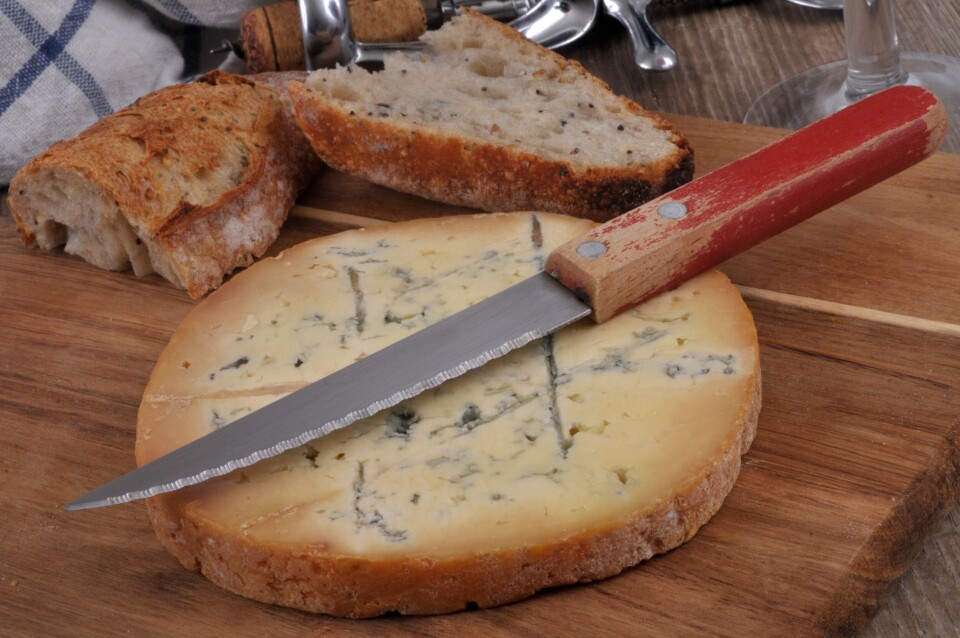-
Alerts over high pollution in Normandy and Paris
Health warnings are in place for vulnerable people
-
Strikes at French ports to continue during March: List of dates
Ferry services may be affected if action stepped up
-
How to help animals and avoid errors in your French garden before spring
Gardening with care can make a big difference at this time of year
Why some French cheese may begin to taste a bit different
This year’s high temperatures and drought has affected the way in which cows are fed, which has a knock-on impact on the cheese produced

This summer’s high temperatures may lead to a change in the taste of some cheeses, French farmers have warned.
Drought affecting feed
Fields have been dried out by the lack of rain and the summer’s heatwaves, meaning that cows – with nothing to eat outdoors – are often being kept inside and being given winter feed.
“It’s been a month and a half now, since the beginning of July, since they have been shut up on winter feed,” said Cédric Mollin, who has 50 dairy cows in Loire.
Normally, he would only start dipping into his reserves from October 15, and he said that “This is a first”.
It has rained a little in Mr Mollin’s area in recent days, but not enough to make up for the record dryness of this summer.
Read more: This is how much rainfall France needs to end the drought
Read more: Summer 2022 has been second hottest since records began in France
“So we either find stock or we sell our cows, that’s the choice,” he said.
Mr Mollin produces milk for the Fourme de Montbrison appellation d’origine contrôlée (AOC) protected cheese, which adds to the strain created by the dry summer.
This cheese must only be produced by cows fed by food from the region, so the lack of grass creates difficulties.
“Our fields have been dried by the very high temperatures and the lack of rain, so the majority of AOC farmers have a clear feed deficit,” Hubert Dubien of the Syndicat de la fourme de Montbrison said.
“But this is not the first time that this has happened to us; we know that this will be a recurring event, so we are organising ourselves for that.”
The union has therefore created an inventory of all the feed supply available in the area designated by the AOC label.
It has also asked the Institut national de l’origine et de la qualité to allow farmers to source 20% of their feed from other areas, and to lower the number of days that their livestock must be out feeding off the land.
This currently sits at 150 days in a year, “but as we have had drought, we have been feeding our animals with silage made in the spring, and we haven’t put them out in the fields this summer,” Mr Dubien said.
He therefore wants this requirement to be lowered to 120 days.
A change in the taste of the cheese
“There will definitely be a different taste” as a result of these changes, “but in what way? I cannot tell you,” Fourme de Montbrison producer Alexis Masson said.
“If I were to go through the same production process in Brittany, with the same procedure, I would not have the same taste of cheese, that’s for sure,” he added.
The feed ingested by cows affects the quality of their milk, “makes the fat, protein, acidity vary,”
Making sure that a substantial proportion of the animal feed continues to come from the region in question is therefore important, Mr Dubien said.
Farmers are therefore experimenting with different grasses which might be more resistant to the effects of climate change.
After the fires, reassuring results for Bordeaux wines
The forest fire which destroyed around 20,000 hectares of land in the Landiras area of Gironde this summer was located in the Graves, Pessac-Léognan, Sauternes, Barsac and Loupiac wine-producing regions.
There were concerns that the fire could have created a “taste of smoke” in this year’s wines, but the first molecular test results are “reassuring”, according to the local Institut des sciences de la vigne et du vin.
This may be because the fire occurred “very early,” before the grape harvest began, meaning that the fruit did not yet have a high sugar content and so did not enable smoke particles to penetrate it.
Related articles
French drought causes early – and poor – apple harvest in Brittany
Should France ban private swimming pool use amid drought crisis?
The African ‘mustard’ coming to the French condiment’s rescue























